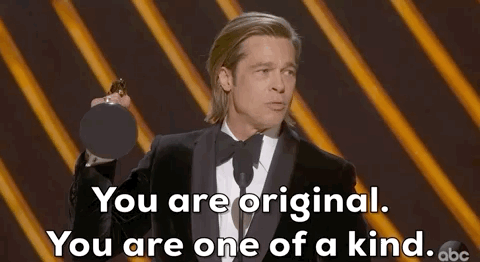Quiet - How Silence Can Help Your Life Speak
Quiet observation is the path to authenticity and fulfillment
Thank You For Your Support!
It’s wild that 6 weeks have gone by with Alive & Thriving. I wanted to take some time to personally thank everyone that has subscribed and supported this newsletter. We started with 18 subscribers and have grown to 65 this past week. I can’t say enough how grateful I am that you choose to read this newsletter every Sunday! The conversations with all of you that have been born out of this have been incredible and it inspires me to learn more and dig as deep as I can into these topics to make sure I’m delivering you something worthwhile.
My Goal is To Get To 100 Subscribers
This feels weird to write but my goal is 100 subscribers before the end of year and I would love your support in getting there! I want to connect with more people that care about this topic and continue to reinvent the content to deliver more value and help people live well.
If this newsletter has resonated with you I’d be grateful if you shared the link with people you believe would enjoy it and get something from it!
Win a copy of my favorite book (not the one I review below)
I know the incentive is not why you will share but I am seriously appreciative of the support and wanted to contribute something back! To that end, I will send a copy of my favorite book to the 3 people who connect the most new subscribers. To win do the following:
Email anspach.alvaro@gmail.com the emails of who you have referred
Include your mailing address in the email
Top three people with the most new subscribers will get a copy of my favorite book :)
Thanks for indulging my attempts at getting this newsletter in front of more people. And thank you for the love and support as always!
Now onto this week’s topic - how silence can help you let your life speak.
Understanding The Idea of Let Your Life Speak
Quiet observation is the path to authenticity and fulfillment. This was a revelation I had as I read Parker Palmer's book "Let Your Life Speak".
I don't think I've been pulled that quickly into a book since I first picked up Harry Potter in 4th grade. It's a quick read at 100 pages and it sucked me in as soon as I started. I read it in one sitting and then read it again the next day because there is so much in Parker's book that is worth revisiting and I won't be able to do it all justice in this newsletter (thank you Josh for the book rec!).
I will likely need several installments to talk through all of it but first I'd like to examine what Parker means by "Let Your Life Speak" and how that idea has been particularly impactful for me.
I'd like to start with a quote from the end of the first chapter:
In our culture, we tend to gather information in a way that does not work very well when the source is the human soul: the soul is not responsive to subpoenas or cross-examinations. At best it will stand in the dock only long enough to plead the Fifth Amendment. At worst it will jump bail and never be heard from again. The soul speaks its truth only under quiet, inviting, and trustworthy conditions.
The soul is like a wild animal—tough, resilient, savvy, self-sufficient and yet exceedingly shy. If we want to see a wild animal, the last thing we should do is to go crashing through the woods, shouting for the creature to come out. But if we are willing to walk quietly into the woods and sit silently for an hour or two at the base of a tree, the creature we are waiting for may well emerge, and out of the corner of an eye we will catch a glimpse of the precious wildness we seek - Parker Palmer
What Does Parker Mean By Soul?
As someone who has never really considered himself spiritual, words like soul usually get me running in the opposite direction or at the very least, a solid eye-roll.
This time, oddly enough, I was moved and his words resonated deeply. The reason for this is I had always understood soul as this fuzzy ether inside our bodies which functioned as our unique fingerprints, which to me, seemed like a bunch of nonsense (no offense).
This time, when Parker says "soul", I believe he means the stuff that makes each of us who we are as individuals. Whatever your explanation is for how you are and who you are - whether through a higher power or through nature & nurture, or some other idea entirely - the point is that we are all uniquely ourselves.
For example, I can't for the life of me, cook a different meal each day for lunch. If it were up to me I would have raw carrots, tomatoes, avocado, lettuce, tahini dressing, and walnuts daily. I just can't be bothered to spend the time thinking through a different recipe and then tinkering with it regularly - it does not bring me joy. Isabella, on the other hand, will literally die if we eat the same thing every single day. Nothing could be more soul crushing than her daily meal not being a tremendous source of joy and pleasure.
Now, for whatever reason that is true, whether it be her experiences growing up or who she was when she arrived on this planet, that is one of the things that makes Isabella who she is and myself who I am. That is but one example of what makes us who we are. Add up the millions of inclinations and disinclinations that we have and you arrive at unique individuals.
If you look at the definition of soul, it corroborates this idea - soul is defined as the spirit and essence of a person. It's another word for who you are as unique and distinct from others.
What Does Parker Mean By Cross-Examination of the Soul?
If we can agree on the definition of soul, what does Parker mean by cross-examination or subpoenas?
I think, what he is getting at here, and what stuck with me is that thinking about who we should be and who we want to be is not an effective way to discover what moves us each individually.
This idea struck me because at its core it questions our notion of control. I believe, many people, like myself, are convinced that we have the power to shape who we are and who we become. To a large extent, I believe that still to be true, however, I think it can result in unhealthy and unproductive approaches. As a result of this desire for self-improvement or control, we spend time thinking about things like:
How do I get better at this?
What am I not good at? What do I need to overcome?
What do I want out of life?
What would make me happy?
I often believed that this internal monologue of questions would yield answers and asking these questions gave me a feeling of greater control. Specifically, control over myself, my actions, my values, my desires, and as a result my life. However, this line of questioning is not always effective and is oftentimes intense. Imagine asking your friend the above questions. You’d be putting them on the spot and it would be both weird and intense. That same approach does not work on ourselves and forces us to drum up answers we may not even believe.
One of the reasons I focus so much on my own self-improvement is 10 years ago I put myself in an unfortunate position that closed a few doors for me. I don't want to go into detail on this newsletter just yet, but suffice it to say, I had some soul searching to do. I decided I did not like who I was at the time and focused my energy on working through aspects of myself that I did not particularly like. For one, I was pretty selfish and a little too convinced of my own abilities (nice way of saying arrogant) and I set out to change that.
In that process, I learned a ton, about myself, who I wanted to be, and how to shape my life. However, I also became way too fixated on control and rationalizing my way through every feeling and every thought.
In a way, as I mentioned in my last newsletter, I had divorced my head from my body - my thoughts ruled and my emotions were held in check.
When Parker says the soul is not responsive to subpoenas or cross examinations I believe he means that thinking, rationalizing, and investigating are not always helpful tools for getting to the root of what inspires, delights, and captivates us as humans.
We can rationalize and justify, if we try hard enough, an interest in anything and oftentimes, that runs counter to who we are and what speaks to the very core of our being. This results in us, as Parker says, living life by how we think we ought to live it vs. by how we naturally want to live it.
So the question, for me, became, how do I listen more closely to how my life wants to unfold vs. focusing on how I think my life should unfold? Parker answers this when he speaks of sitting silently.
What Does Parker Mean By Sitting Silently?
If thinking is not always the most helpful approach when it comes to discovering what moves us, what repels us, what brings us energy, and what dulls us - what is the best approach?
"the soul speaks this truth only under quiet inviting conditions"
"if we want to see a wild animal, the last thing we should do is to go crashing through the woods, shouting for the creature to come out."
Parker notes that silent observation is the key to discovering what moves us as individuals.
As someone that spends a lot of time observing the outside world and "doing" - for example, I'm usually engaged in a project or consuming some type of information, I realized I don't pay a lot of attention to myself. Sure, I spend a ton of time on self-reflection, but all of that energy is directed and focused on rational thought vs. emotion and feeling.
It was an important distinction for me because it was obvious how little attention and importance I placed on my own feelings. For example, I knew rationally that I hated traveling as much as I did last year. However, I had also rationalized that I had spent long amounts of time away from Isabella, had been doing it for years, and only needed to do it for a bit longer. My conclusion was that it would be fine to continue with my travel schedule until I reached a point where it no longer felt like a necessity. Although I did not love it, I rationalized my way into convincing myself I just had to travel a little bit longer.
If I had really paid attention to my body vs. my head - I would have noticed tension that had me wound tight, heat that made me feel like parts of my body were on fire, and a sharp pain in my chest that emerged when I would leave home.
The realization for me is that you can rationalize any behavior. At the end of the day, no matter how much I KNEW I could endure those feelings, was that really any way to live? And what are the consequences of living that way for an extended period of time?
Another realization was that you can only notice what moves you and conversely what you are repelled by if you stop and observe yourself in your experiences. We can only see what uniquely inspires us and where our limitations exist if we are willing to stop consuming, to stop searching, to stop doing. We must be willing to be present, listen, and pay attention to what is going on.
I know the above sounds fuzzy and maybe even a little crazy but the gist of it is, we spend our whole lives defining who we expect ourselves to be and what we are capable of through thinking and sheer force of will. At least that is what it was like for me. Too much time spent looking outward or thinking instead of looking inward and observing.
Putting This Information Into Practice
With this knowledge in hand, the question that came to mind was what does paying more attention to myself look like? Another passage in Parker's book gives us a clue:
We are like plants, full of tropisms that draw us towards certain experiences and repel us from others. If we can learn to read our own responses to our own experience - a text we are writing unconsciously every day we spend on earth, we will receive the guidance we need to live more authentic lives.
His idea here is that throughout our lives there are clues, scattered, as to what inspires us, what feels effortless to spend time on, what we value, and what experiences we revel in. Additionally, as we live life, we constantly learn more about ourselves and what moves us.
For me, this was an incredibly powerful idea. We spend our lives working to construct who we are meant to be as opposed to discovering who we are as our story unfolds.
Ask Yourself Day To Day Questions That Get At How You Feel
The big takeaway for me (and this may be obvious to a lot of you) was to live in the moment and pay closer attention to how I feel. The head is important, but equally important is to pay attention to how we feel and respond to different events. A good tactic is to include time to reflect at the end or beginning of your day:
How did that experience make me feel?
What did I gravitate towards today?
What did I move away from or put off?
What is (not) giving me energy?
If I could stop doing something today what would it be?
If I had a bunch of extra time, how would I spend it?
These questions are not exhaustive but can be useful in daily journaling or even reflecting on them moment to moment. The point is to observe how you felt. If you notice that you start “thinking” - I had fun today, or I was not thrilled, you may be in your head to much. Just try and reflect and notice how you felt without using words (this is weird and hard if you’re not used to it, feel free to reach out to me to talk about it).
Reflect On Your Life Experiences
Another big takeaway for me was to observe the different events in my life and reflect on what was fun, what was easy to do, what gave me energy, what did not give me energy, what I spent time on, etc.
What did I enjoy doing when I was younger?
What did I hate doing when I was younger?
What are the most enjoyable life experiences I have had?
What are the least enjoyable life experiences I have had?
What have I done that I would spend time doing again today in a heartbeat?
What would I never want to repeat or spend time doing again?
What feels good to do?
When do I lose of track of time?
Schedule Time to Do Nothing
Lastly, a habit I have put into practice is to schedule time to do nothing. Not meditating. Not browsing on my phone. Just doing nothing. Doing nothing is about practicing:
Patience - The capacity to accept or tolerate delay, trouble, or suffering without getting angry or upset.
Observation - The action or process of observing something or someone carefully or in order to gain information
Silence - The fact or state of abstaining from speech [or thought]
This could be useful to do regularly (i.e. 1 hour per week) or periodically, one day per month, one weekend per quarter, one week per year, or whatever works best for you.
The point is to take a break from consumption and even introspection. Take a moment to just sit, observe, and enjoy doing nothing.
All of these tactics are good ways to start learning how to pay attention to your feelings. The more you are aware of them, the more you'll be able to tie those emotions to the kinds of experiences that cause them and have a better understanding of what moves you and how.
Spend Time Being Quiet
The punishment imposed on us for claiming true self can never be worse than the punishment we impose on ourselves by failing to make that claim. And the converse is true as well: no reward anyone might give us could possibly be greater than the reward that comes from living by our own best lights.
I'll leave you with this last quote and my conclusion. Rational thinking is a critical tool in ones life. However, like anything, a strength or focus with no attention to its counterpoint leaves us exposed and incomplete.
Humility - independent of assertiveness leads to passivity. Assertiveness - independent of humility leads to recklessness or arrogance.
Thoughtfulness without regard for self leads to self-sacrifice. Care for self without thought for others leads to selfishness.
The same is true for rational and emotional thinking. Paying attention to the rational and suppressing the emotional leads to lack of authenticity and congruence.
Paying attention to the emotional but not the rational leads to impulsiveness and lack of judgement. When you open yourself up to both we are on our way to living, as Parker says, by our own best lights.
Feedback Time 😁 - Share Your Thoughts
Would love your feedback (two questions only!) so I can better tailor this newsletter to you all in the future → Feedback Form
Lastly, if you enjoyed this newsletter you can use the link at the bottom to easily share it with others that you think would like it as well.
To Living Well,
Alvaro
Weekly Live Well Recs
Read of the week 📖: Let Your Life Speak - By Parker Palmer
Listen of the week 🎧: Practice silence :)
Product(s) of the week 🍯: Practice silence :)







